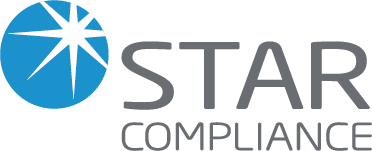Push people into a financial corner and they can justify all kinds of conduct they might not otherwise
It's no great stretch to say that stress in one's personal life can affect one's work life. Only the most priestlike among us can keep work life and personal life completely separate. Personal stress comes in many forms: from relationship troubles, to health problems, to financial distress.
And while each can lead to a range of erratic or unexpected behavior at work, of most concern to compliance teams is unethical behavior. Specifically, the kind that might lead employees to believe the solution to a personal problem is violating a firm's code of ethics and, say, using insider information to execute a personal stock trade.
And while all the above-mentioned personal stressors have the potential to create financial hardship, and lead an employee to use his or her position to try and turn things around, financial distress probably creates the most direct behavioral connection between the personal problem and perceived workplace solution. Following is a list of telltale behaviors compliance officers should keep an eye out for in this regard.
1. LOANS AGAINST 401K PLANS
This is a likely sign of personal financial distress. If you're astute enough in the first place (not everyone is) to participate in your employer's retirement plan—to have the foresight to understand there will come a time when you either can't work or won't want to work—then you're likely astute enough to know not to touch these retirement monies prematurely. There are also serious tax consequences related to prematurely getting into your 401K. Given all this, an action like this won't be taken lightly.
An employee taking out a loan against his or her 401K will necessarily involve the cooperation of the company's plan manager or someone in human resources. It will be well worth a compliance officer's time to check in regularly with the appropriate person on this sort of thing. And it's not just loans. Discontinuing 401K contributions is another sign an employee might be living financially close to the bone.
2. PAYDAY-ADVANCE REQUESTS
There's simply no reason an employee would ask an employer for an advance on a paycheck unless that employee were in some kind of tight financial spot. Whether because of poor budgeting or an unexpected expense, it's not the kind of thing one does unless absolutely necessary.
It's worth considering offering payday advances as a service to employees, whether directly or through a responsible third-party provider. This will prevent employees being preyed upon by the payday loan industry: something that could leave them in even more financial distress. Employees can also turn to other employees for emergency "loans" in tight spots. A compliance officer would be wise to stay tuned-in to either kind of employee behavior.
3. ABSENTEEISM
If employees are taking more unexpected time off than usual, it could mean they need that time—9 to 5 time—to deal with personal financial issues, perhaps to talk to banks or creditors. And it's not just that they might need uninterrupted time for this, the kind they can't manage at work. They might also want that time to be private, for fear their personal financial woes will be overheard by others in the workplace.
An employee suddenly missing a lot of work might also mean transportation issues, like unaffordable car repairs. A more extreme but still plausible explanation for missing work might also be a second job overlapping with the primary one. Stories of people working two or even three jobs to make ends meet are all too common.
4. PRESENTEESIM
Presenteeism is the idea that employees are at work even when they shouldn't be. If they're paid hourly and there's little or no sick time to take, or they've used it all up, they may feel they have no choice but to show up to collect their full pay. Work performance may suffer as a result, or they may be angry or exhibit poor morale. This is something HR may have a handle on, or better yet the organizationally aware, roving compliance officer: tuned into the emotional and operational vibes the employee base is giving off.
On a similar note, compliance officers also ought to keep their ears pricked for sudden and unusual requests for overtime. There's no mystery here. Working more at your existing job to make ends meet beats having to trundle off to a second to do the same.
5. UNUSUAL OUTSIDE ENQUIRIES
People take out loans for all sorts of reasons, the vast majority no doubt legitimate, but occasionally not. If an employee has submitted a loan application, HR may get a call to verify employment and wages. The implication here is that an employee is experiencing some personal financial trouble and is using a loan to cover expenses: maybe for day-to-day living or an emergency, like a big medical bill. This is something that should raise a compliance officer's eyebrow. So should an employee having his or her wages suddenly garnished.
On a related note, any sudden jump in the frequency and duration of phone communications that aren't work related can point to some sort of dramatic change happening in an employee's personal life. Again, this is the kind of thing an organizationally in-tune compliance officer can pick up on.
DESPERATE TIMES, DESPERATE MEASURES
Push people into a corner, especially a financial one, and they can justify all kinds of conduct they might not otherwise. There are steps enterprise financial firms can take to help their employees out, like the above-mentioned payday loan service facilitation, or employer-sponsored personal finance counseling. Anything a company can do to help people out of a financial jam will, in the end, benefit both the employee and the business.
But if an employee is bound and determined to use his or her position for financial gain, no matter the reason, it's up to the compliance officer to spot what's going on: ideally as soon as possible. This list of telltale behaviors can help in that effort. Because even in this age of automation compliance officers remain first and foremost investigators. Modern software may provide most of the clues compliance officers rely on these days to do their job, but keeping a finger on the pulse of the organization remains crucial.


